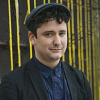Home » Jazz Musicians » Lennie Tristano
Lennie Tristano
Tristano mastered the bebop style, playing both intricate runs and sustained chordal passages, and by the late 1940s was working in New York, where he made some significant discs with the musicians who had developed bebop - notably Charlie Parker and Dizzy Gillespie. But his own musical direction involved exploring ideas of both freedom and abstraction, together with a 'cool' atmosphere.
He formed a sextet, that included some of his former pupils and tenorist Warne Marsh, and their work paralleled much of the experimentation of Gil Evans and Miles Davis. In the early 1950s, Tristano opened his own jazz school, and for the rest of his life he focussed on teaching rather than playing.
His pupils included many significant figures in jazz, all of whom benefited from his rigorous analysis of classic jazz performances, and the scalar and harmonic exercises he developed. He appeared in public from time to time in the 1960s but his best playing on record dates from the late 1940s, when his blend of innovation and technical perfection was at its height.
Tristano maintained a teaching regimen in the early ‘60’s, yet his performances were very few, he did a tour of Europe in 1965, and his last US appearance was 1968. He continued with his teaching until his death in 1978.
Lennie Tristano is an enigma in jazz, though he is not for every listener, his pioneering efforts in the forefront of the free jazz movement speak for themselves. Maybe because of his isolated sense of cerebral perception, he has not received his proper recognition, nonetheless, an innovative jazz pianist. Source: Alyn Shipton
Tags
Pianoism

by Patrick Burnette
A great big heapin' helping of a certain blind pianist's work provides the anchor for this time's outing, as we look at one disc from six of a new box set and then fan out to look at a little known second-hand disciple of the great man along with two other stylists further removed. Pop matters further reveals Mike's ongoing obsession with all things Buckley.Playlist Discussion of Lennie Tristano's album Personal Recordings (Dot Time / Mosaic) 4:07 Discussion ...
Continue ReadingLennie Tristano Personal Recordings, 1946-1970

by Peter Rubie
They called it the Cool School, but what's in a name?In this case, quite a lot as it happens. The Cool School included musicians like Chet Baker, John Lewis and the Modern Jazz Quartet, and Dave Brubeck. Under the guidance of arranger and composer Gil Evans, it established itself in an unquestionable way with the release of Miles Davis' album Birth of the Cool (Capitol Records) in 1957, though the music had actually been recorded some eight or ...
Continue ReadingLennie Tristano and Lee Konitz: Proto-Cool (1946 - 1955)

by Russell Perry
Pianist Lennie Tristano was a very visible participant in the modern jazz innovations of the mid-1940s through the early 1950s, winning polls and participating in all-star jam sessions. Yet his music was always a little outside the mainstream and was increasingly so as he began to experiment with fully improvised performances by 1947. While his focus on low dynamics and long flowing lines has been seen as a precursor of the cool school that arose early in the 1950s, the ...
Continue ReadingMarch Birthdays Including Nat Cole & Lennie Tristano Centennials

by Marc Cohn
We've got a nice slug of celebrants to honor in addition to our 'centennialins.' Our best wishes go out to Bill Frisell (playing here with Andrew Cyrille and Wadada Leo Smith), Joe Locke, Charles Lloyd, and Roy Haynes (backing Sarah Vaughan). A very special shout out to Jessica Williams! Enjoy the show! Playlist Joe Locke “Litha" from Beauty Burning (Sirocco) 00:00 Nat King Cole “Sometimes I'm Happy" from After Midnight (Capitol) 07:32 Nat King Cole “The Lonely One" ...
Continue ReadingBebop, Swing, and Bella Musica: Jazz and the Italian American Experience

by Bill Dal Cerro
The following is an excerpt from the “Lennie Tristano: The Passionate Intellectual" chapter of Bebop, Swing, and Bella Musica: Jazz and the Italian American Experience by Bill Dal Cerro and David Anthony Witter (Bella Musica Publishing, 2015). World War II and the atomic bomb changed not only the political landscape, but art, architecture and music as well. In architecture, “Googie" or “Ray-Gun Gothic" combined many of the traditional elements introduced by Frank Lloyd Wright almost forty years ...
Continue ReadingLennie Tristano: Jazz Visions & Lennie Tristano: His Life in Music

by Francis Lo Kee
In 1949 Lennie Tristano (1919-78) recorded “Intuition and “Digression , two of the earliest examples of freely improvised jazz. Though the approaches and content differ greatly, authors Peter Ind and Eunmi Shim agree on the following: Tristano best represents how a non-commercial artist can be “air-brushed out of jazz history as an extremely influential teacher. Jazz Visions: Lennie Tristano and His Legacy Peter Ind Paperback; 192 pages ISBN: 1845530454 ...
Continue ReadingLennie Tristano: Abstraction & Improvisation

by Nic Jones
Pianist, composer and educator Lennie Tristano's place in the history of the music seems anomalous from the vantage point of the twenty-first century. His music was arguably as iconoclastic as that of Charlie Parker's and Dizzy Gillespie's and equally of its time, but in contrast with that it can come across as colorless and one-dimensional. His influence has been limited to the likes of sax players Warne Marsh and Lee Konitz, though amongst his fellow pianists only names such as ...
Continue ReadingLennie Tristano Personal Recordings, 1946-1970

Source:
JazzWax by Marc Myers
The long-awaited Lennie Tristano box from Mosaic has just been released. Culled from previously unissued material found in the pianist’s personal collection by his daughter, Carol, Lennie Tristano Personal Recordings, 1946-1970 features airchecks, remote wire recordings, live dates preserved by bandstand colleagues, solo tracks recorded at Tristano's East 32nd Street studio in New York and Rudy Van Gelder's studio in New Jersey, and group tracks made at Tristano's studio in Hollis, Queens. Jerry Roche of Dot Time Records supervised the ...
read more
Lennie Tristano: Duo Sessions

Source:
JazzWax by Marc Myers
In 1968, pianist Lennie Tristano stopped touring. Traveling had become too much for him and he preferred to focus on teaching. During this period, he recorded with students in his home studio at his loft apartment at 317 East 32nd Street. The tapes of three of Tristano's students appear with him on an album called The Duo Sessions (Dot Time), released last year. The students were saxophonist Lenny Popkin, pianist Connie Crothers and drummer Roger Mancuso. Popkin's October 1970 tracks ...
read more
3 Videos: Lennie Tristano

Source:
JazzWax by Marc Myers
Lennie Tristano's piano had a different sound. When improvising, his left hand typically kept meticulous time with a walking bass line while his right wandered with purpose. Together, they sounded like two people on the same flight of stairs, one plodding up returning home while the other impishly skipping down briskly to get outside. Here are three videos of the blind pianist and cool-jazz innovator during his European tour in 1965: Here's Tristano in Berlin (at 18:17), on a spectacular ...
read more
Lennie Tristano: Chicago 1951

Source:
JazzWax by Marc Myers
One of the most important live recordings of the Lennie Tristano Sextet with Lee Kontiz and Warne Marsh has just been released. The material has never before been issued, and the sound is superb, capturing the group's cool sound at its peak and at a critical moment in jazz history, just a year before Lee Konitz would join the Stan Kenton Orchestra. The only live recording that comes later than this one with Lee and Marsh features six tracks captured ...
read more
Lennie Tristano: The Complete Look Up and Live

Source:
Rifftides by Doug Ramsey
Lennie Tristano was born in Chicago on this day in 1919. At birth, influenza ruined his vision.By his 10th birthday he was blind. Formally trained at a music conservatory, he played piano and, as a 12-year-old clarinetist, led atraditional band. By the time he moved to New York in1946, Tristano had begun deepening the harmonic possibilities in modern jazz and by the end of the decade was a guru to forward looking musicians including saxophonists Lee Konitz and Warne Marsh ...
read more
JazzClip: Lennie Tristano (1965)

Source:
JazzWax by Marc Myers
On the evening of October 31, 1965, pianist Lennie Tristano performed solo at the Tivoli Gardens Concert Hall in Copenhagen. The event was captured for Danish television using multiple camera angles. Several additional Tristano concert performances were recorded on the same tour of Scandinavia and Europe. And that was it. In 1968 Tristano performed publicly for the last time and spent the next 10 years of his life teaching. [Photo above of Lennie Tristano in 1949] As writer Ted Gioia ...
read more
Tristano and the Robots

Source:
Rifftides by Doug Ramsey
The animated digital robot spoofs springing up on the internet include several aimed at the jazz-insider culture, in particular at the hipper-than-thou talk exchanged among students of the art who may be ever so slightly over-educated and just too cool—but not too cool for words. There are plenty of words in these cartoons. One of the most inviting targets for robot satire is the school of musicians who pattern themselves on the playing and teachings of Lennie Tristano and his ...
read more
Lennie Tristano Symposium at the Worcester Polytechnic Institute on April 15, 2007

Source:
All About Jazz




















































